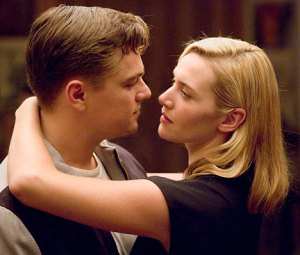Tuesday, October 20, 2009
Tuesday, July 21, 2009
We're moving.
Thursday, July 2, 2009
Why Leave America Behind?
The first answer that came to mind was a utilitarian one: We ought to produce the greatest good for the greatest number of people. The degree of need and the stakes of successful nonprofit collaboration are higher in sub-Saharan Africa than anywhere else in the world. Leaving America behind makes a lot of sense within the utilitarian framework.
Here’s the problem: I hate utilitarian ethics. Human beings are more than utility consumers and producers, and our responsibilities to one another cannot be whittled down to simple formulas. A utilitarian worldview leaves little room for the demands that culture, kinship, history, faith, and other aspects of our lived experience place on us.
Outside of a utilitarian approach, I had no idea how to respond to this rather pointed question. Instead, I babbled on about conscience and experience, trying to avoid saying things like:
- They need my abilities (No, they don’t)
- Nobody else will do it (Yes, they will)
- I feel called (Sort of)
- The need is so great (Welcome back, utilitarianism)
The phrase “leaving America behind” assumes that the value of my traveling to Uganda is a one-way street, that the U.S. is losing an asset and Uganda is gaining one. This is not only arrogant but also wrong. Instead, I hope to add-value to Ugandan civil society and, at the same time, be informed and transformed by the ideas and lives of Ugandans. This cross-pollination of cultures and people is crucial for thriving in a globalized world, we must learn from Uganda and they must learn from us.
Innovation often stems from having people with multiple perspectives and skill-sets thinking about the same problem (e.g. when engineers work with anthropologists to design a new product). Imagine if Americans never left the country, never engaged with ideas and institutions around the world, do you think we could stay innovative? Also, if Ugandans are going to find better ways to do things, then it might be useful to have me at the table as yet another perspective thinking about the same problem. In short, AssetMap will not be innovating for Ugandans, we will innovate with them.
When next asked why I am leaving America behind, I will say that I am not, that Uganda is doing America a favor by allowing me to learn from and innovate with them.
Tuesday, June 30, 2009
Underdog Albums of 2009: Part II


Tuesday, June 9, 2009
Underdog Albums of 2009: Part I



Sunday, June 7, 2009
The Last Two Months of My Life... and the Next 12
Curiously, history provides concrete evidence that the world’s most capable democratic states do not respond to instances of genocide with consistent behavior. The principles of nonintervention and sovereignty, a state’s self-interests, and an array of internal and external pressures, can cause action, or be completely ignored. The primary puzzle to be investigated is thus, ‘What motivates advanced democratic states to politically commit to genocide intervention?’ This project will investigate the argument that states have made calculated responses to recent acts of genocide based on national self-interests, internal and external pressures, and their normatively influenced identities. Contributions will therefore be made to the existing literatures of genocide research, humanitarian intervention, and international relations.
Sunday, April 26, 2009
2008 Film in Review




Saturday, April 25, 2009
Solo & I.O.U.S.A.

Sunday, April 12, 2009
Protestantism, Capitalism, and Discontent
I recently picked up the Conquest of Happiness by Bertrand Russell in which he writes:
I was not born happy. As a child, my favorite hymn was: “Weary of earth and laden with my sin.” In adolescence, I hated life and was continually on the verge of suicide, however, I was restrained by the desire to know more mathematics. Now, on the contrary, I enjoy life; I might almost say that with every year that passes I enjoy it more.This speaks strongly to both my life experience and frustration with the church, but also hints at a potentially inherent antagonism between capitalism and Christianity.
This is due in large part to a diminishing preoccupation with myself. Like others who had a Puritan education, I had the habit of meditating on my sins, follies, and shortcomings. I seemed to myself – no doubt justly – a miserable specimen. Gradually I learned to be indifferent to myself and my deficiencies; I came to center my attention increasingly upon external objects: the state of the world, various branches of knowledge, individuals for whom I felt affection. External interests, it is true, bring each its own possibility of pain: the world may be plunged in war, knowledge in some direction may be hard to achieve, friends may die. But pains of these kinds do not destroy the essential quality of life, as do those that spring from disgust with self.
The primary religion of our culture emphasizes the depravity of the human nature. The institution that has largely guided American social transformation for the past two-hundred years, market capitalism, is centered in the primacy of self-interest. With our economics leading us to focus on ourselves, and our religion on how fallen and broken we are, is it surprising that we aren’t getting any happier?
Despite my frustrations, I am a Christian and believer in the usefulness of markets – seeking an alternative way to understand faith and society through a lens of human flourishing, not depravity and selfishness.
Thursday, March 26, 2009
Revolutionary Road

Like many, this story begins with a young couple that falls in love, marries, has children, and finds a house in the suburbs. The husband, Frank, takes a job he hates and is ‘too talented’ for and his wife April feels trapped and bored in her role as suburban housewife. Sounds typical, right?
Wrong. Most other stories have frustrating but likeable characters who end up sticking it to the man or living the life they always imagined upon an enlightening/ empowering experience. Lester Burnham of American Beauty fits this bill well. In Revolutionary Road, nearly everyone is despicable, blind, and completely lacking in courage. The one man who sees clearly the world Frank and April find themselves in is John Givings, a recently released psychiatric patient and former math professor. Here are a couple of his more powerful insights:
In speaking about the suburban way of life, he says, "Hopeless emptiness. Now you've said it. Plenty of people are onto the emptiness, but it takes real guts to see the hopelessness."
Then, in an argument with Frank about April's second (surprise) pregnancy and why Frank took a promotion at a job he hates instead of moving his family to Paris to start over as he had planned, Givings remarks, "I wouldn't be surprised if you knocked her up on purpose, just so you could spend the rest of your life hiding behind that maternity dress."
Unfortunately, Givings sees only ugliness, so much so that he is completely incapable of finding a role in society. Herein lies the underlying theme of the movie: There is no alternative to a seemingly absurd world. While one leaves the film convinced about the futility of suburban married life as an end in itself, a deeper angst comes from the film’s intentional failure to articulate an alternative. I left asking myself, “If no this, then what?”
It’s a tough pill to swallow but, once taken, I think it unearths our deepest insecurities as young American hopefuls.
Sunday, March 15, 2009
Watchmen
Impotence, not coincidentally, is the unifying theme of Watchmen. I've posted before that the story, as told by Gibbons and Moore, is essentially a freudian analysis of the psychosexual complexes that motivate people to dress in leotards and fight crime, and (therefore) that motivates readers of the genre to commune with the medium with fervent intimacy. When you look past all of the story's remarkable trappings, it is ultimately a tale of freaks and failures, of men and women who believe they're heroes and villains but in the end are little more than slaves to their own subconscious feelings of powerlessness. It is here that I take issue with Snyder's adaptation.
Dave Gibbons' name appears in the credits of the film; Alan Moore's does not. This is appropriate, but it is not because Snyder failed to attempt to preserve the integrity of the text. Indeed, both authors' work, as it appears in the ink on the page, is preserved with remarkable fidelity here. Scenes from the novel are regularly reconstructed panel-for-panel and line-for-line. The problem is simply that Gibbons' vision is well-served by the big-screen costuming and special effects; Moore's is not.
...
To show Night Owl and Spectre engaging in kung fu heroics is not only an exaggeration of the text, it is a fundamental misreading of their characters. These aren't action heroes; they're people who get their capes caught in revolving doors and are brutally gunned down. Moore's greatest insight with Watchmen was to realize that if flawed people choose to engage in heroics that are infinitely beyond them, the results of their efforts are not comic (as was, and is, so widely popularized in comedies of bungling superheroes), but tragic. Snyder seems to be completely oblivious to this. These aren't people who are uniquely endowed to be heroes, as the Night Owl/Spectre fight sequences would imply, but are either tormented into doing so (like Rorschach and the Comedian, the moral centers of the work), or are looking to get off (basically everyone else).
(via Mark)
Watchmen (the book) benefits in a variety of ways from its medium, but the comic format has its drawbacks. Because of the ease with which its pages turn, one can miss the many subtle themes Watchmen has to offer. As the above highlights, the movie's greatest flaw is not that it gets the story wrong (J. Hoberman actually argues it gets it too right) but that it misses one of Alan Moore's fundamental points.
Thus, there are two things anyone should do before seeing this film: (1) read the book, and (2) read it again. This is not a suggestion so much as a prerequisite. To see this film without understanding the novel's underlying themes is to reduce its real substance to mere plot.
Having fulfilled the above requirements, I left the movie theater last Saturday feeling elated in the knowledge that this movie was probably as good as it could have been. It was true to the book, Snyder's stupid camera tricks never bogged down scenes the way they did in 300, and besides a couple of miscasted roles, the acting was more right than wrong.
And yet, this film's greatest success has nothing to do with what occurs between its previews and closing credits. Unlike the multitude of superhero films released this decade -- Spiderman, X-Men, and Batman among the most popular -- Watchmen serves not to supplement, but to complement (or even advertise) its source material. Since the buzz began for Snyder's adaptation nearly a year ago, the book has seen record sales, and it is currently sitting at the top of Amazon's bestseller list.
Ignoring the merits of the film altogether, Zack Snyder and Warner Bros. Pictures deserve one helluva pat on the back for igniting a new interest in both a twenty-year-old comic book and the graphic novel medium itself.
Wednesday, March 11, 2009
Where’s the love?
Nonprofits are typically built in the following way:
1) Someone has a “new idea” that will solve the “most pressing issue” of our time
2) The founder uses their charm, close networks, and good luck in raising money
3) They operationalize their idea by developing programs and filling an office
4) They find ways to show how well their programs are doing without actually addressing whether the world really looks any different because of their programs
5) The cycle continues: restate the vision, get more funding, run programs, overstate impact...
The following are a few of my high-level critiques and observations:
1) There is no rational process that incentivizes real impact
Every nonprofit has a “unique approach” that validates their existence ad infinitum (though they all claim to be working to put themselves out of business). This leads them to have entirely different and thus uncomparable metrics of success, which also undermines the prospects of real partnership and collaboration. If everyone can define success differently, then there cannot be a mechanism that consistently rewards more impactful organizations. This means that funders do not maximize dollar for dollar impact, but instead rely on their gut, being wooed by emotional appeals, or personal pet interests and friendships.
2) “At least we’re doing something” usually means rationalized mediocrity
Nonprofits often have unbelievably audacious visions and rarely hold themselves accountable to audacious impact goals. One example is Teach for America (TFA). TFA is often discussed as a best-in-class nonprofit, and I would agree; they definitely attract top-talent (read John Boumgarden). However, I think they too fall into this category of huge vision with dissonant impact. Wendy Kopp’s vision is “One day, all children...” The average impact of a Corps Member is one tenth of one grade level better than the average (see study). Are we really to believe that this is the strategy that will lead to “One day, all children?” But hey, at least they’re doing something.
Did Gandhi start a nonprofit? Did King? The two most impressive civic leaders of the 20th century impacted world structures without the nonprofit apparatus. There are obviously many great nonprofits out there (see Harlem Children’s Zone), but I think we have become too quick to channel our desire to do good into the segmented, weakly accountable, and largely unimpressive nonprofit sector.
Vaclav Havel, the great Czech dissident and politician, offers us an alternative to the typical nonprofit approach. He says:
We are looking for new scientific recipes, new ideologies, and new institutions to eliminate the dreadful consequences of our previous recipes, ideologies, and institutions [...] We cannot discover a law or theory whose application will eliminate the disastrous consequences of the application of earlier laws and theories.
What we need is something different, something larger. Man’s attitude toward the world must be radically changed. We have to abandon the arrogant belief that the world is merely a puzzle to be solved, a machine with instructions for use waiting to be discovered.
We have to release from the sphere of private whim and rejuvenate such forces as a natural, unique, and unrepeatable experience of the world, an elementary sense of justice, the ability to see things as others do, a sense of transcendental responsibility, archetypal wisdom, good taste, courage, compassion, and faith in the importance of particular measures that do not aspire to be universal [...] The way forward is not in the mere construction of universal systemic solutions. Instead, human uniqueness, human action, and the human spirit must be rehabilitated.
How do we implement Havel’s call for a transformed human consciousness based on justice, compassion, and responsibility? I don’t know, maybe I’ll start a nonprofit.
Tuesday, March 10, 2009
The Birds, the Bees & the ICC

- Early 2003: Violence begins in Darfur, a conflict that continues today. Roughly 300,000 people have died, more than 3 million people have been displaced, and 4.7 million people now rely on humanitarian aid for food, water, and shelter. It is the world's largest humanitarian crisis.
- March 2005: In a sly move at the UN, France essentially corners the Bush administration, and the case of Darfur is referred to the ICC.
- April 27, 2007: The ICC issues arrest warrants for Ahmed Haroun, Sudan's Minister of State for Humanitarian Affairs, and Janjaweed militia leader Ali Kushayb. Both remain at large and are therefore classified as "international fugitives."
- July 14, 2008: ICC Prosecutor Luis Moreno-Ocampo presents a case against Sudanese President Omar al-Bashir for war crimes, crimes against humanity, and genocide in Darfur.
- March 4, 2009: The ICC issues an arrest warrant for Bashir on five counts of crimes against humanity and two counts of war crimes, but not genocide as Moreno-Ocampo suggested. It is the first arrest warrant for an active head of state issued by the ICC.
- In the last week: Bashir is totally not cool with the arrest warrant. The guy's literally dancing in the streets of Darfur and laughing at the ICC's absurd allegations.

Saturday, February 28, 2009
Top Chef Season 5 Wrap-Up: Suck Mountain


